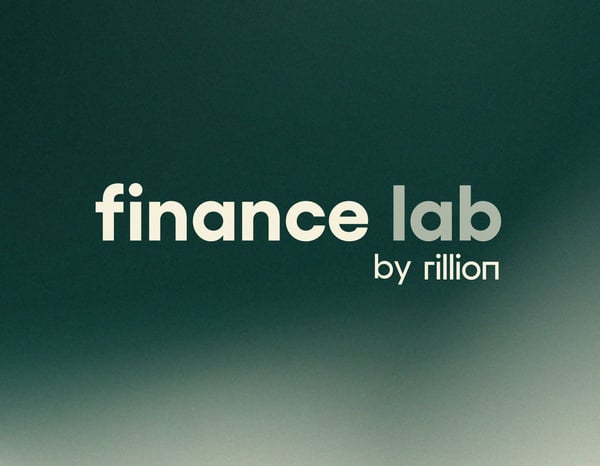

The worst has happened. Your company has experienced a data breach with serious consequences. Not only have you suffered financial losses, but your company’s reputation has also taken a significant hit.
What if it could have been avoided?
In this article, you’ll get practical tips on how to improve cybersecurity in your organization and learn how Rillion’s AP automation solution keeps your data safe.
Why Is Cybersecurity Important for Businesses and Finance Departments?
In the age of AI, 67% of global cybersecurity leaders report that the technology has increased opportunities for attackers to breach systems.
Finance departments are particularly vulnerable as they handle sensitive financial information—not only their own but also that of customers and suppliers.
“Cybersecurity is important for everyone, but the type of data handled by a finance department is especially sensitive,” says Per Nilsson, Head of Online Operations at Rillion.
David Asarnoj, Director of Engineering, adds:
“If customer data is leaked, it can have far-reaching consequences. Companies also face ransomware attacks that can lock their IT systems, paralyzing operations and causing significant financial losses. In the worst-case scenario, it could even lead to bankruptcy.”
8 Tips for Better Cybersecurity
The risk of data breaches is constantly increasing, but there are relatively simple measures you can take to make a big difference. Here are eight tips to protect your company from data breaches and leaks:
1. Use Multi-Factor Authentication (MFA)
Implement MFA for accessing your systems. By adding an extra layer of identity verification, you increase security and keep unauthorized users out.
2. Choose Long and Complex Passwords
Does your organization use separate logins for different systems? To minimize the risk of stolen credentials, create unique passwords and avoid reusing them. The longer, the better—and be sure to include a mix of letters and special characters.
3. Implement Single Sign-On (SSO)
With SSO, you only need to log in once to access all your password-protected applications. This means you only have to remember one password, making it easier to create a highly complex one.
4. Update All Systems
Failing to update software and operating systems introduces significant risks. You miss out on critical security updates, increasing your vulnerability.
5. Train Your Staff
A chain is only as strong as its weakest link. It’s crucial to educate employees about cybersecurity, making them aware of phishing emails and fraud attempts.
6. Set Up Network and System Monitoring
Monitoring your networks and systems makes it easier to detect intrusion attempts. The system will automatically flag any unusual activity.
7. Establish Disaster Recovery Procedures
Being prepared for the worst is essential in cybersecurity. Plan how quickly you can recover from a data breach or leak, and create solid routines for recovery. Don’t forget to test them regularly to ensure they work.
8. Take Security Seriously
Cyberattacks are a growing problem, and methods are becoming increasingly sophisticated—especially with AI. For example, it’s now possible to fake a phone call to sound exactly like your boss requesting sensitive information. Integrating IT security into your company’s operations is more important than ever.

Key Questions to Ask Your AP Automation System Provider
Attacks targeting AP automation systems carry specific risks:
- Data leaks
- Manipulated payments
- Fraudulent invoices
- Corrupted information that disrupts accounting and bookkeeping
When selecting an AP automation system, it’s essential to evaluate the provider’s approach to security, as they will handle both your data and that of your suppliers.
Here are critical questions to ask:
- Security and Data Protection
- How is sensitive data protected?
- What type of encryption is used for data at rest and in transit?
- How does the system handle data breaches or security incidents?
- Is the system compliant with GDPR and other relevant data protection laws?
- Access and Authentication
- Does the system support multi-factor authentication (MFA)?
- Is single sign-on (SSO) functionality available?
- Can we control and limit access based on roles and permissions?
- Security Updates and Maintenance
- How often is the system updated to address new security threats?
- Do you offer automatic security updates?
- How quickly do you respond to identified vulnerabilities?
- Incident Management and Support
- What type of support do you provide in case of a security incident?
- Is there a dedicated contact person or security team?
- What is the process for reporting and resolving issues?
- Audit and Traceability Features
- Does the system offer logging and traceability to track changes or
suspicious activity? - Can we easily perform security or user audits?
- Does the system offer logging and traceability to track changes or
- Industry-Specific Requirements
- Do you have experience working with companies in our industry?
- Does the system support industry-specific security standards, such as ISO 27001 or SOC?
- Cloud vs. On-Premises
- Is the system cloud-based or locally installed?
- How is security ensured in a cloud environment?
- Where is the data geographically stored?
- Backup and Recovery
- How is data backup handled?
- How quickly can data be restored in case of an incident or downtime?
- Is the backup encrypted and protected from attacks?
- Future-Proofing
- How does the system scale with our business?
- What is your long-term plan for system development and security?
How Rillion Works with Security
Security is a top priority at Rillion—it’s one of the reasons our customers choose us.
“We are SOC-compliant, which demonstrates that we follow established processes and routines. We also work with external partners to ensure our service is secure, including regular penetration testing,” says Per.
Rillion’s products are developed using secure coding principles, and all code is thoroughly reviewed before being launched on the platform.
“We build security into how we code and how users interact with the platform. For example, we validate data to prevent the insertion of malicious code through the user interface,” says David.
Protection Against Fraudulent Invoices
Have you ever encountered a fraudulent invoice? Or perhaps you’ve heard about the problem?
Rillion helps you identify fraudulent invoices before any damage is done. The system cross-checks invoices against a database of flagged suppliers and automatically alerts you if there’s a match, ensuring you only approve legitimate invoices.
Let’s Talk About Secure AP Automation with Rillion
Want to learn more about electronic invoice management and how Rillion can keep your data secure? Get in touch—we’d be happy to show you more!


